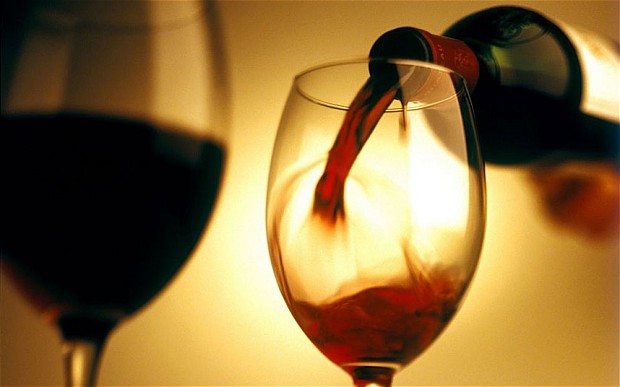A study of patients who did not normally drink found those having the regular tipple with their evening meal had healthier hearts and cholesterol levels than those who drank mineral water or white wine instead. And they slept better than those drinking water.
Researchers followed 224 participants with type 2 diabetes - the form linked to obesity - for two years and put their findings down to the healthy antioxidants in dark grapes called phenols - the most well-known of which is resveratrol.
Prof Iris Shai, of the Ben-Gurion University of the Negev in Israel, said: "The differences found between red and white wine were opposed to our original hypothesis that the beneficial effects of wine are mediated predominantly by the alcohol."
However both red and white wine improve sugar control among those carrying genes that helped them to metabolise alcohol slowly.
It is though that diabetes affects nearly four million people in Britain although around 850,000 are currently undiagnosed.
The first long-term alcohol study of its kind - published in Annals of Internal Medicine - aimed to assess the effects and safety of initiating moderate alcohol consumption in diabetics and sought to determine whether the type of wine matters.
People with diabetes are more susceptible to developing cardiovascular diseases than the general population and have lower levels of "good" cholesterol.
Despite the enormous contribution of observational studies, clinical recommendations for moderate alcohol consumption remain controversial - particularly for people with diabetes due to lack of long-term studies.
Prof Shai added: "Red wine was found to be superior in improving overall metabolic profiles.
"Initiating moderate wine intake, especially red wine, among well-controlled diabetics, as part of a healthy diet, is apparently safe, and modestly decreases cardio-metabolic risk.
"The differential genetic effects that were found may assist in identifying diabetic patients in whom moderate wine consumption may induce greater clinical benefit."
The researchers found only the slow alcohol-metabolisers who drank wine achieved an improvement in blood sugar control while fast alcohol-metabolisers did not.
One in five participants was found to be a fast alcohol-metaboliser - identified through genetic tests.
In the study neither red or white wine had any effect on blood pressure, liver function, adiposity or adverse events or symptoms.
But sleep quality was significantly improved in both wine groups - compared with the mineral water group.
The participants in the CArdiovaSCulAr Diabetes and Ethanol (CASCADE) trial all generally abstained from alcohol and gradually initiated moderate wine consumption.
Prof Shai said: "The genetic interactions suggest that ethanol plays an important role in glucose metabolism, while red wine`s effects additionally involve non-alcoholic constituents.
"Yet, any clinical implication of the CASCADE findings should be taken with caution with careful medical follow-up."
The patients were randomised into three equal groups according to whether they consumed a five-ounce serving (150ml) of mineral water, white wine or red wine with dinner every night for two years.
Wine and mineral water were provided free of charge for the purposes of the study.
Compliance with alcohol intake was tightly monitored with patients returning their empty wine bottles and receiving their new supplies.
All groups followed a non-calorie-restricted Mediterranean diet with adherence monitored using several validated assessment tools.
During the study subjects underwent an array of comprehensive medical tests including continuous monitoring of changes in blood pressure, heart rate and blood glucose levels and follow-up for hardening of the arteries and fat by ultrasound and MRI scans.
More about:
















































